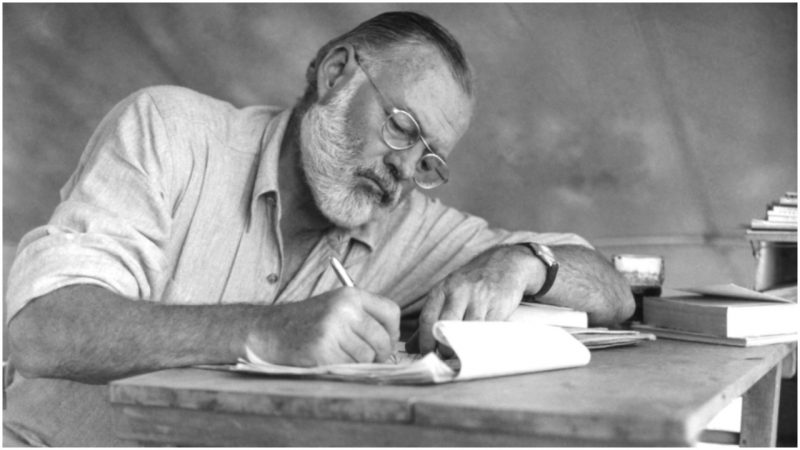Despite winning writing prizes and movie deals for his fiction and receiving constant press coverage as the larger-than-life “Papa Hemingway,” the year 1956 was not an easy one for Ernest Hemingway.
The days of producing novels like The Sun Also Rises, A Farewell to Arms, and For Whom the Bell Tolls were behind him. His last successful book was The Old Man and the Sea in 1952, and he was finding the filming of it frustrating.
Hemingway’s biographer, Carlos Baker, wrote, “The mid-fifties–the least eventful years of Hemingway’s adult life–were largely spent recovering from his Africa injuries and dealing with many new illnesses.” He then got married to his fourth wife, Mary.
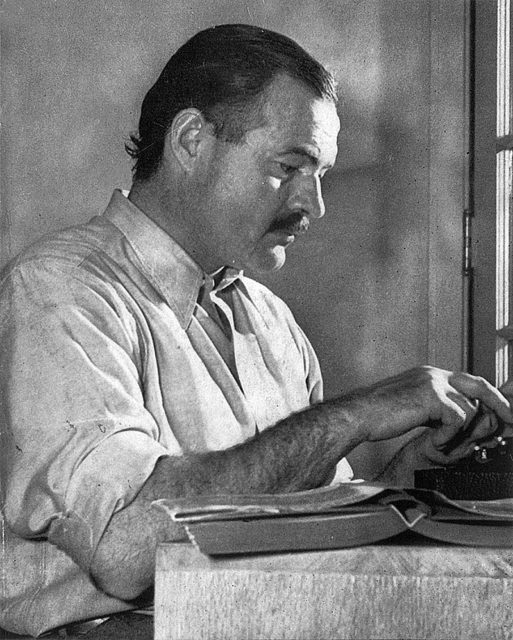
Nonetheless, Hemingway was a writer who could still exert formidable discipline over himself, and he returned to his craft. In the summer of 1956, he wrote five short stories. One of them was titled “A Room on the Garden Side,” a 2,100-word story told in the first person by an American writer named Robert just after Allied soldiers liberated Paris from Nazi Germany in the August of 1944. That story never saw the light of day.
Until now.

The latest issue of the literary quarterly The Strand is publishing “A Room on the Garden Side.” Wrote The Chicago Tribune: “The themes and trappings are familiar for an Ernest Hemingway narrative: Paris, wartime, talk of books and wine and the scars of battle.”
The room of the title is one in the Ritz, the hotel in Paris on the Place Vendôme that Hemingway adored and liked to say he had personally “liberated” from the Nazis.
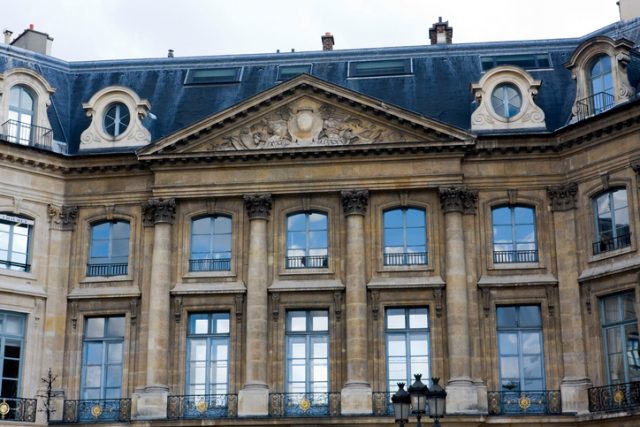
How did the story surface so many years later?
“I heard about it a while back from speaking to a Hemingway scholar,” explained Strand managing editor Andrew Gulli in an interview with The Vintage News. “He rifled off the names of a few stories by Hemingway that were never published before. And shortly after, I contacted a Hemingway scholar who I knew well and he confirmed that those stories were not published and were known to the Hemingway Estate for years.”
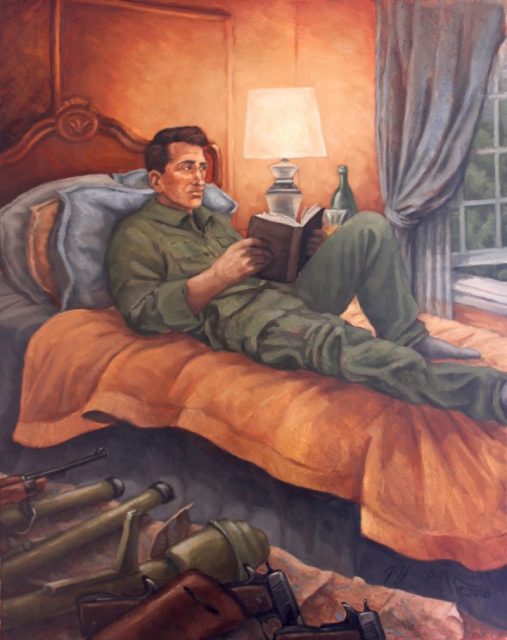
The manuscript — 15 pages written in pencil — has been stored in the Hemingway collection at the John F. Kennedy Presidential Library and Museum in Boston, available only for study by scholars.
Gulli said that short stories have a huge place in the body of work of authors who excel at writing them. “Hemingway was no exception, he was a brilliant short story author and this story has some of his favorite themes: the sacrifice soldiers make during war, man’s struggle against mortality, nostalgia for the past and hope for the future.”
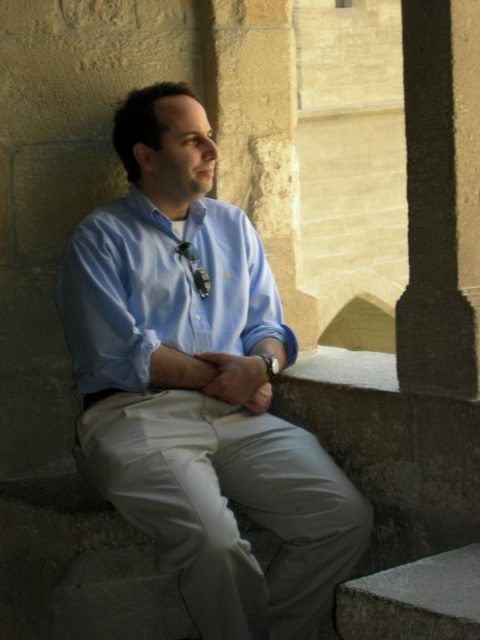
When asked why the author held it back all this time, Gulli said one could never be certain. “I’m not an expert on Hemingway, but I think he was perfectionist and he was probably too hard on himself and felt it might have needed some more work. He wrote a letter to Charlie Scribner saying that he could publish this story and others when he was dead. So I count the Strand fortunate that Mr. Hemingway didn’t publish this during his lifetime.”
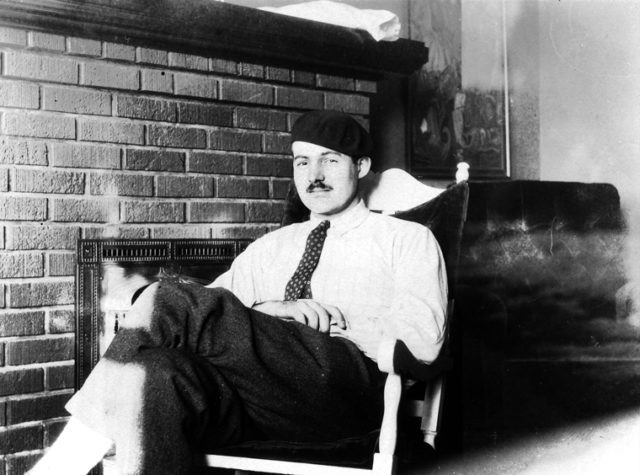
In August 1958, when Hemingway was not actively writing, he sued to block Esquire from reprinting in an anthology of three of his uncollected stories of the Spanish War. “He felt the stories did not represent his best work,” wrote Baker.
21 of the greatest quotes of all time
“A Room on the Garden Side” coming to light in 2018 is reawakening interest in Hemingway and in the Strand, which is perhaps best known for publishing mystery and crime fiction stories and reviews and has brought to life little-known work by Raymond Chandler. “We like to keep everyone guessing,” said Gulli. “Predictability is our enemy and Hemingway is a literary hero of mine.”
Kirk Curnutt, a board member of the Hemingway Society, wrote an afterword in the magazine that the piece “contains all the trademark elements readers love in Hemingway” and captures “the importance of Paris.”
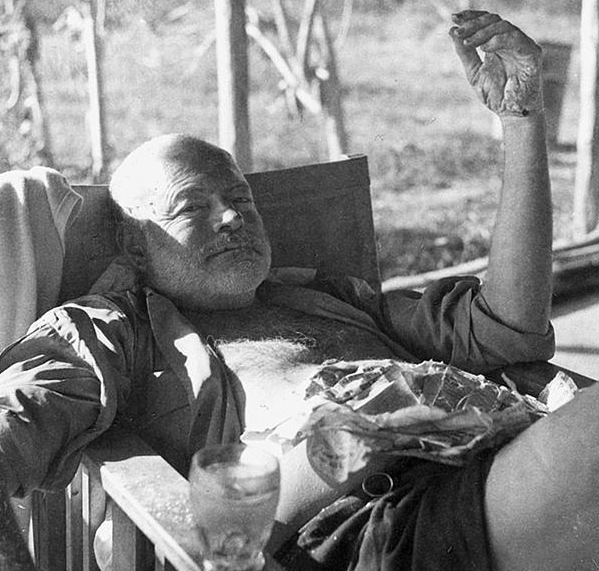
“The war is central, of course, but so are the ethics of writing and the worry that literary fame corrupts an author’s commitment to truth,” Curnutt wrote.
Read another story from us: The Declassified FBI Files on Ernest Hemingway
As for whether he needed to do anything to Hemingway’s story to prepare it for publication, Gulli responded: “We’re talking about Hemingway–I wish all my authors would submit prose so clean!”
Nancy Bilyeau, a former staff editor at Entertainment Weekly, Rolling Stone, and InStyle, has written a trilogy of historical thrillers for Touchstone Books. For more information, go to www.nancybilyeau.com.
